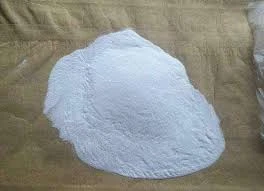The Significance of Adhesive Chemicals in Modern Industries
Adhesive chemicals, often referred to simply as adhesives, are essential substances that create bonds between surfaces. They play a critical role in a wide range of industries, from construction and automotive manufacturing to electronics and healthcare. The importance of adhesive chemicals can be attributed to their versatility, efficiency, and the innovation they bring to product assembly and design.
One of the primary advantages of adhesive chemicals is their ability to bond dissimilar materials. Unlike traditional mechanical fastening methods such as screws and nails, adhesives can effectively join various materials, including metals, plastics, glass, and wood. This property is particularly valuable in the automotive and aerospace industries, where weight reduction is a priority. By using adhesives rather than heavier mechanical fasteners, manufacturers can significantly decrease the weight of components, leading to improved fuel efficiency and performance.
Moreover, adhesive chemicals are known for their ability to distribute loads evenly across bonded surfaces
. This characteristic enhances the structural integrity of assembled products, making them more resilient to stress and strain. In environments subject to vibrations and movements, such as in machinery or vehicles, adhesive bonds can withstand forces that might compromise mechanically fastened joints. This reliability is especially crucial in sectors like aerospace and civil engineering, where safety is paramount.The advancements in adhesive technology have led to the development of a wide array of products to suit specific applications. From fast-curing adhesives to those that can withstand extreme temperatures or corrosive environments, the options available today cater to the diverse needs of various industries. For example, in electronics, conductive adhesives are utilized to create reliable connections between components, ensuring functionality while reducing production time and costs.
adhesive chemical

Additionally, the rise of sustainable practices has influenced the adhesive chemicals market. Manufacturers are increasingly prioritizing eco-friendly adhesives derived from renewable resources or designed to reduce harmful emissions. Water-based adhesives, for instance, have gained popularity due to their lower environmental impact compared to solvent-based options. This shift not only helps companies comply with stricter environmental regulations but also appeals to eco-conscious consumers.
In the healthcare sector, adhesive chemicals have revolutionized product design, particularly in the production of medical devices and wound care products. Surgical adhesives, for example, are now commonly used as alternatives to traditional sutures, providing effective wound closure with minimal scarring. Additionally, adhesive bandages and medical tapes offer secure and comfortable options for dressing injuries while allowing for flexibility and movement.
Despite the numerous advantages, the selection and application of adhesive chemicals require careful consideration. Factors such as surface preparation, curing conditions, and environmental exposure must be evaluated to ensure optimal bonding. Improper use can lead to adhesive failure, which may result in product malfunction or safety hazards. Therefore, rigorous testing and quality control are essential components in the adhesive manufacturing process.
In conclusion, adhesive chemicals are integral to modern manufacturing and product design across various industries. Their ability to create durable, lightweight bonds, coupled with technological advancements, makes them indispensable in contemporary applications. As industries continue to evolve and prioritize sustainability, the role of adhesive chemicals will likely grow, driving innovation and efficiency in assembly processes while addressing the needs of a changing market. In an ever-competitive landscape, the strategic use of adhesives may indeed be a key differentiator for businesses aiming to enhance product performance and meet consumer demands.






